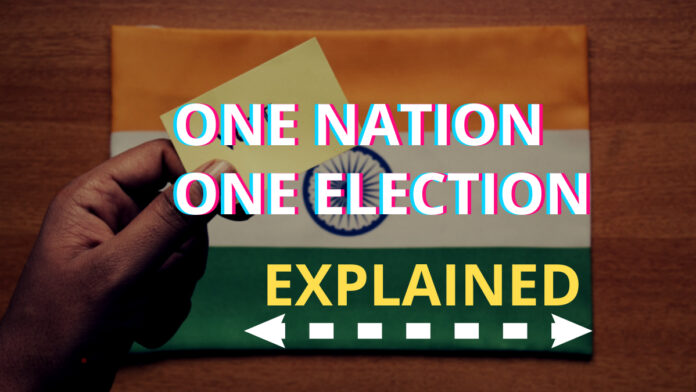One Nation One Election Bill 2024: The Central Government is set to introduce the landmark ‘One Nation, One Election’ Bill in Parliament on Tuesday, with Union Law Minister Arjun Ram Meghwal leading the presentation in Lok Sabha. This comes after the cabinet’s approval of the proposed plan last week, following recommendations from a high-level committee chaired by former President Ram Nath Kovind.
One Nation One Election Explained (Point Breakdown)
- Synchronized Elections The proposal aims to conduct simultaneous elections for Lok Sabha and state assemblies, followed by local body elections within 100 days.
- Economic Impact The Kovind committee highlighted how multiple elections throughout the year negatively affect the economy, governance, and social fabric of the nation.
- Implementation Process The President will issue a notification declaring the Lok Sabha convening date as the ‘appointed date’ to ensure synchronization of all elections.
- State Assembly Alignment Newly-formed state assemblies will have adjusted terms to align with the next general elections schedule.
- Constitutional Changes
- New Article 324A proposed for simultaneous local body elections
- Amendment to Article 325 for unified voter rolls
- Common photo ID system for all elections
- Emergency Provisions In cases of hung assemblies or no-confidence motions, new elections will be held with terms lasting only until the next scheduled general election.
- Local Body Integration Municipal and panchayat elections will be synchronized in the second phase, ensuring complete electoral alignment.
- Implementation Committee A dedicated group will oversee the reforms’ execution, ensuring smooth transition and implementation.
- Infrastructure Preparation The Election Commission will procure necessary equipment, including EVMs and VVPATs, well in advance.
- State Ratification The proposed amendments will require ratification from state legislatures, making state cooperation crucial for success.
What Experts Say
Political analysts suggest this could be the most significant electoral reform since independence, though it faces both support and criticism from various quarters.
The proposal has garnered attention for its potential to reduce election-related expenses and ensure more focused governance. However, some opposition parties have raised concerns about its impact on federal structure and regional representation.




